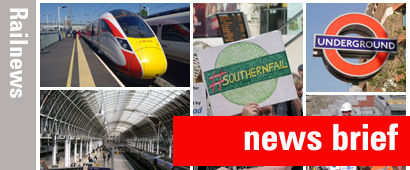A STRIKE ballot held by the RMT on ScotRail has failed to attract enough votes in favour, and the union is blaming ‘ScotRail tactics’ and ‘prohibitive anti-union laws’ for the result.
The ballot produced 756 votes in favour of strikes and 631 against. This meant that 31 per cent of those entitled to take part had supported strikes, but the law says at least 40 per cent must approve for a strike to be legal.
A second option of ‘industrial action short of a strike’, such as a ban on overtime, produced 955 votes in favour and 631 against, but this also failed to reach the legal minimum.
The ballot had been called to support a pay claim. The dispute had been fuelled by a drivers’ pay rise which the RMT had described as ‘inflation busting’.
The RMT claimed the result had been influenced by a ScotRail ‘campaign of misinformation and intimidation designed to influence the outcome’.
The union’s general secretary Mick Cash added: ‘While this is a positive result with a clear majority favouring the union's position of taking strike action and action short of a strike, the prohibitive anti-union laws requiring 40 per cent of those entitled to vote to vote Yes has not been reached.’
ScotRail said it had advised against any strikes because as a result of the current Emergency Measures Agreements it cannot take part in pay talks without the formal permission of the Scottish Government.
In addition, ‘At a time when no permanent jobs have been lost, no changes to basic salary levels have been made, and not a single member of ScotRail staff has been placed on furlough, ScotRail’s credibility with passengers and the taxpayer would be damaged by any strike action during a national crisis.’
Chief operating officer Alex White commented: ‘I am glad ScotRail staff decided not to support strike action. While this is an issue that has led to a lot of discussion across our organisation, I welcome the decision that has been reached as I feel that it is right for the railway and our passengers.
‘Strike action at a time of national crisis, and when we benefit from a level of job security not enjoyed by other industries, would have been wrong.
‘It is recognised that our staff have worked hard during the pandemic to deliver a safe and reliable service for key workers. It’s vital that we all now work together to attract more people back to the railway when Covid-19 restrictions allow.’


